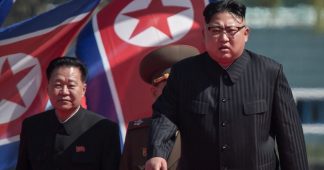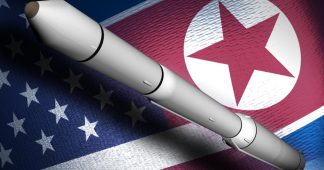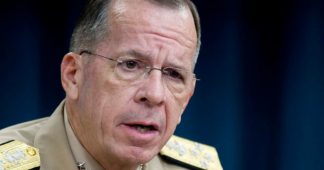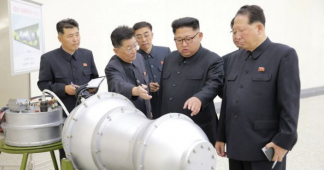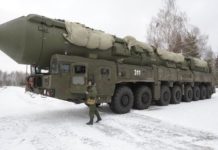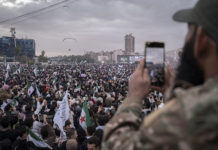By February 28, 2018
John Bolton defends preventive war against North Korea, but he won’t call it by that name:
Pre-emption opponents argue that action is not justified because Pyongyang does not constitute an “imminent threat.” They are wrong. The threat is imminent, and the case against pre-emption rests on the misinterpretation of a standard that derives from prenuclear, pre-ballistic-missile times.
The concepts of preemption and imminent threat have been so thoroughly warped by the Iraq war debate that their proper meanings have been all but lost. Preemption means striking before an impending attack occurs, but there is no such attack being prepared by North Korea. If the U.S. strikes North Korea first under these circumstances, our government would be committing an act of aggression pure and simple. There would be no preemption, because there would be no attack to preempt.
Bolton declares that the threat from North Korea is imminent, but this requires us to redefine imminent to mean something entirely different from what it has always meant. Imminent means something that is about to happen, and that does not describe the threat from North Korea. North Korea is not about to attack the U.S. or its allies. It is not about to do it next month or next year. It is not about to do it at all. It has been deterred from doing so for decades, and continues to be deterred. In order to believe that there is an imminent threat from North Korea, namely one that is going to happen in the very near future, one also has to believe that its government is bent on self-destruction. Bolton writes about North Korean nuclear weapons and missiles as if their mere existence justifies a U.S. attack, but that is simply nonsense.
Supporters of preventive war cannot honestly defend their position, because the war they favor is illegal and unjust, and so they rename it preemption and hope that no one knows the difference. The frequent confusion of pre-emption and preventive warfare in mainstream media reporting helps to ensure that very few are aware of the rhetorical trick being played on them. Advocates of preventive war are proposing that the U.S. engage in a war of aggression in violation of international law, but in order to sell the war they need people to believe that the war would be defensive in nature. That is why they keep hiding behind the label of pre-emption.
Josh Rogin accurately described Bolton’s position in his report from earlier this week and reminds us why we should care what the mustachioed militarist has to say:
John Bolton, former U.S. ambassador to the United Nations, whom Trump reportedly is considering to replace H.R. McMaster as national security adviser, supports preventive war through a massive strike [bold mine-DL], if sanctions fail.
There should be no doubt that Bolton is calling for starting a preventive war, and we should not be fooled by his attempts to confuse the issue by abusing the English language.
